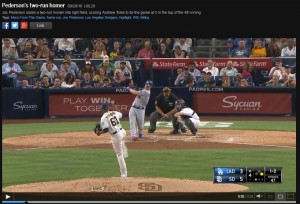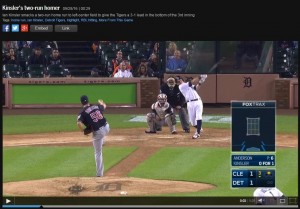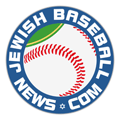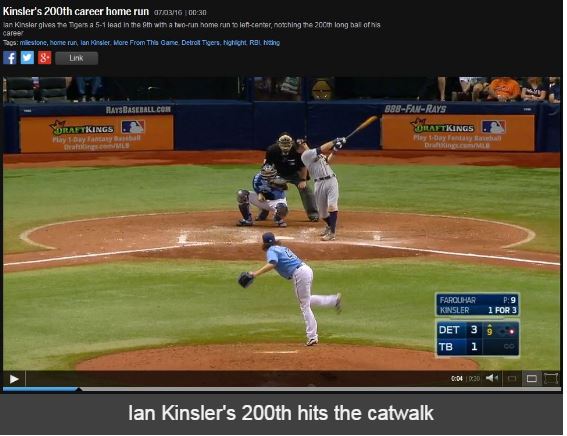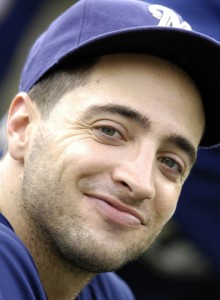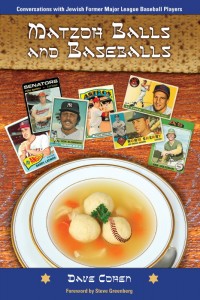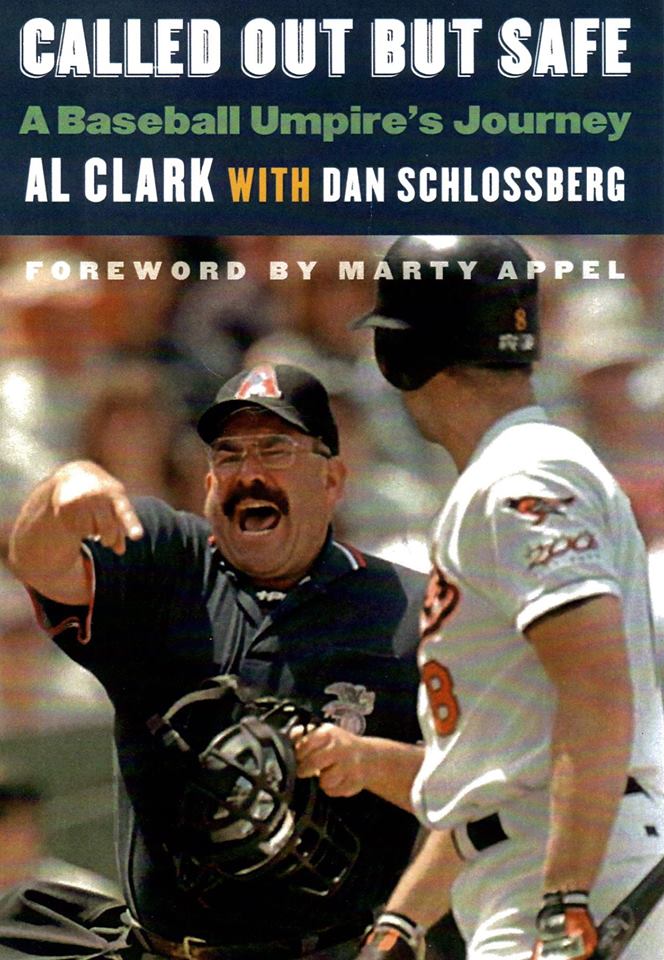 By Scott Barancik, Editor
By Scott Barancik, Editor
From 1976 until MLB officials told him “You’re out!” in 2001, Al Clark was one of baseball’s most respected umpires, and among very few who were Jewish.
In a new memoir written with Dan Schlossberg, the 66-year-old Clark recalls the highlights and lowlights of his life in and out of baseball, from seeing Bucky Dent’s playoff home run and Nolan Ryan’s 300th win at field level to going to jail after a memorabilia scandal.
The son of a sportswriter, Clark also reflects on things Jewish: how blowing the shofar on the High Holidays prepared him for life on the diamond; his admiration for Shawn Green (and contempt for Bud Selig); and anti-Semitism he faced while umpiring in the minors.
The following excerpt is reprinted from Called Out But Safe: a Baseball Umpire’s Journey, published by University of Nebraska Press on May 1, 2014. Please note that while Jewish Baseball News received no compensation for this coverage, the website will receive a small commission for any books purchased via our Amazon link.
—————————
Chapter 8 – The Yiddishe Umpire
When I was growing up in New Jersey, Jewish boys became doctors, lawyers, or accountants – certainly not professional umpires. I’m proud that I was able to change that.
Because of my career choice, my name is actually the answer to two Trivial Pursuit questions, in the sports edition. One is, “Who was the only person in professional sports who wore his name on his hat?” And the other is “Who was the first and only Jewish umpire in American League history? “
There have been National League umpires who were Jewish — Dolly Stark, Stan Landes, Al Forman, to name three. Later, Paul Schreiber served in both leagues after the staffs were combined. But I was the first and only Jewish American League umpire.
People were surprised when they found out I was a Yid. They said to me, “Geez, that’s not a profession for a Jewish boy, an umpire?” And they’d say umpiring is difficult and getting to the big leagues even more so, adding that if it were easy, more Jews would’ve tried.
I’m very proud I’m Jewish. I was bar mitzvahed in Ahavath Israel, an Orthodox synagogue in Trenton, New Jersey, in a January that had a lot of snow. I even learned to blow the shofar for the high holidays.
My rabbi, Solomon Poll, took religion very seriously and was a very good teacher. Before the High Holy Days, he would bring out the shofar and show all the kids how to blow it. For some reason, maybe I was full of hot air even then, I could put the shofar on the side of my mouth and could hold the ram’s horn. I could blow the shofar and make it have a true sound.
It’s not easy but I didn’t think it was that tough either. The rabbi took a liking to the way I could blow the shofar and assigned me to do it in synagogue during the Rosh Hashanah and Yom Kippur holidays. I was a rookie who came in cold. It’s a good thing the rabbi let me take the shofar home; I did a lot of practicing.
When the holidays finally arrived, I was more skittish than a cat in a room full of rockers. I was more nervous than I ever was on a baseball diamond – probably because I was so young and inexperienced.
But my grandparents couldn’t have been more proud. Their grandson, little Alan, was blowing the shofar on the High Holy Days. It was kind of cool.
Blowing the shofar was not only a good experience but helped make me comfortable years later. I was never nervous in front of people or nervous about public speaking. And isn’t public speaking supposed to be one of the most nerve-wracking things people do?
By the time I walked onto a big-league baseball diamond, I had years of training and experience in dealing with crowds.
I probably could have used shofar spring training but went to Yankee spring training instead. I grew up listening to Mel Allen broadcast Yankees games. We knew Mel was Jewish and came from Alabama; his real name was Mel Israel.
Religion wasn’t a big deal for me in the big leagues. I never forgot that I was Jewish. All I did was work hard.
With the exception of a handful of players, a few owners, and lots of writers – who wanted to be part of the game but probably weren’t good enough to play – baseball is primarily a world of non-Jewish people. The fact that I am Jewish never came into play, although some people did know about it.
Some of the players today don’t have a feeling of the history of the game and feel like major league baseball wasn’t important until they arrived. They don’t know the history. There are some African-American players today who don’t have a grasp on who Jackie Robinson was and what he did, nor Henry Aaron or Willie Mays. That’s a shame. They are cheating themselves of the great multi-ethnic foundation of our game.
There weren’t too many Jewish players in baseball history, but the ones who were there knew who Hank Greenberg was, what he did, and how he did it. And Moe Berg.
What a great story Berg was, whether you’re Jewish or not. He was a covert operative for the United States during World War II. Can a baseball story get any better than a player being a spy?
One story concerning Berg and Babe Ruth is priceless. Berg was a very intelligent man. He spoke multiple languages. After the 1934 season, players took a barnstorming trip to Japan for an exhibition tour. They didn’t fly in those years but took a cruise ship. They left from Los Angeles. The Babe asked Moe if he knew Japanese. Moe indicated he did not. After arriving, Ruth saw Berg speaking to their Japanese greeters in fluent Japanese.
After greetings and salutations, Babe went approached Berg and said, “Moe, you lied to me. Two weeks ago, I asked you if you knew Japanese and you said no.” Berg just looked at him and said, “Babe, that was ten days ago.” On the voyage, Berg learned Japanese.
Stories like that are inherent in our history—and when I say “our history,” the baseball lineage history. Players today should know more about that. The history of our game is what makes our game the greatest game in the world.
Later in life, I realized how important Moe Berg was; I read the book The Catcher Was a Spy. I was proud to know that people in our game were such tremendous patriots – not only Berg but many other players who served during WW II: Ted Williams, Joe DiMaggio, Bob Feller, Hank Greenberg, and others who selflessly gave of themselves to our country. They are to be admired and honored forever.
I never met Greenberg. I know he was Jewish and that bit of ethno-centrism, that we were both Jewish, made me proud Jews can excel in our national game.
Like Greenberg, Sandy Koufax retired long before I began my own baseball career. But I did meet Sandy a number of times. He is a gentleman above all, a quiet man. He gave of himself very sparingly but when he did, he was all in. He talked to pitchers whenever the situation warranted. He held nothing back once he was committed.
When I was a kid, I met Berg, a friend of my next-door neighbor John “Sparrow” Moran [Flip’s dad]. I even remember playing catch with him in my backyard. I do remember that Berg took the train with Sparrow Moran from Princeton to New York most days and I remember he was a catcher. Moran was a conductor on the now-defunct Pennsylvania Railroad.
My Jewish pride stems from the fact that these players were as good as they were AND we shared a heritage. Greenberg, Koufax, Al Rosen, and Ryan Braun won Most Valuable Player awards while Koufax and Steve Stone, along with half-Jew Jim Palmer, won Cy Young Awards.
Among today’s players, Shawn Green carved his own niche in baseball history, hitting four home runs, a double, and a single in one game. That gave him 19 total bases, one more than Joe Adcock, who hit four home runs and a double for the Milwaukee Braves against the Brooklyn Dodgers in the ‘50s.
I was always a Shawn Green fan. He came to the big leagues as a Toronto Blue Jay. I knew he was Jewish and did go out of my way to be a little nice to him, to make him feel welcome to the big leagues. It was because of the kindred spirit that we all kind of have.
I’m glad he did well but I never would do anything to help. There was one American League pitcher who shall remain nameless. He had a very Jewish name. We were in the dugout one day, before a game when he came to me and said, “Hi, Al.” I said, “How you doing?” He said, “You know, it’s good to see you. I hear that you’re Jewish.” I said, “Yeah, I am.” He said, “You know, I am too.” I said, “Yeah, it’s pretty obvious.” He said, “I’d like to stay up in the big leagues, and any time you’re back there, calling balls and strikes, would you give me a little help? I’d really appreciate it.”
I curtly and strongly told him that was not the way it was going to be. I told him to rest assured that this conversation will never be repeated, not to any other umpires or to anyone else. Thank goodness, baseball’s umpires do not think of anything except the merits of play.
I don’t think that guys knew I was Jewish. Or cared. Green knew because I told him. Rod Carew knew. Jesse Levis knew. And a few others.
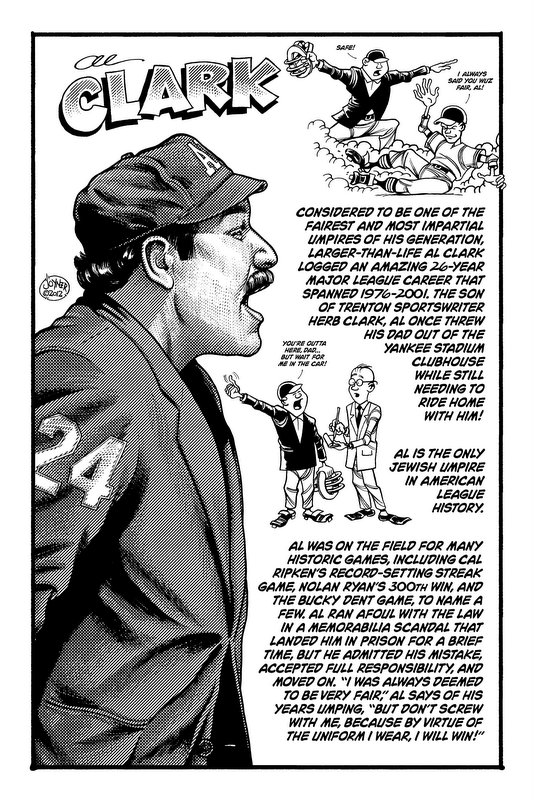
There was one September game in Milwaukee when Green was batting, Levis was catching for the Brewers, and I was the home-plate umpire. It was almost Rosh Hashanah. We wished each other a Happy New Year when we were together at home plate.
Shawn was a good guy. After he had established himself as a star, he came to me once between innings of a game and said, “Listen, anytime you need anything, you know, autographs or bats or balls or anything like that for any charity events, you make sure you call me first.” I thought that was very nice of him.
There are so few Jews in baseball that there’s a fraternity or a family that supersedes baseball. Maybe it’s the heritage we’ve all shared. It’s certainly not anything overt; it’s just a feeling.
I’ve never been to Israel but my dad was there. He went over on a Jewish Times trip.
He used to write for that publication so they took him over there and he had a great time. There was a Jewish magazine convention in Jerusalem he attended.
Long after my career ended, a six-team professional league was founded in Israel. Dan Duquette, now general manager of the Baltimore Orioles, was the American contact and a number of Jewish players – Ron Blomberg, Ken Holtzman, and Art Shamsky – were involved as managers. Blomberg’s team won the championship. Unfortunately, the Israel Baseball League (IBL) lasted just one season, 2007.
I tried to become a consultant to that league, helping their umpires, but it never materialized. I would’ve loved going over and doing some clinics and working with the umpires in Israel.
I never experienced any overt anti-Semitism in the major leagues but had three shaky incidents back in the minors.
My partner Ted Hendry and I were walking out of the ballpark in Indianapolis after the Indians played a game against the Iowa Oaks. When Ted and I were walking to our car an hour after the ballgame, there weren’t a lot of people around. Denny McLain, once a 30-game winner for the Tigers who was back in the minors and on his way out of the game, and Ray Busse, a shortstop who had a cup of coffee in the big leagues, were both on the Iowa roster. Iowa had lost that night and I had worked home plate. Unprovoked by anything, they both started verbally attacking me, “You kike son of a bitch. What the fuck is a Jew doing in our game? You don’t deserve to be here. Go the fuck home, you kike motherfucker.” The players both thought their rant was quite funny but neither Ted or I did.
It shook us up tremendously. Ted and I went back to our hotel and called Joe Ryan, then president of the American Association. He was appalled. Ryan called the Iowa general manager and the two guys were suspended that night. When Joe Sparks, the Iowa manager, came out to home plate the next day, he couldn’t have apologized more. He couldn’t have been more professional. And it was certainly appreciated. I’m sure the news of that evening’s after-game activity made its way around the country quite quickly.
Another anti-Semitic incident occurred in 1974, two seasons before I reached the majors. Once again, Hendry and I were together. That time, we were sitting in a restaurant in Des Moines with former National League (and future Hall of Fame) umpire Al Barlick. He was working as an NL umpire supervisor and scout.
We were just talking when the conversation turned to minorities in baseball when Barlick proclaimed, “I’ll tell you one thing. As long as I’m alive, there will never be another fuckin’ Jew umpire in my league.”
I looked him straight in the eye and just as boldly proclaimed, “I’m Jewish.” I then excused myself, got up from the table, and left. Fortunately, I never saw him again.
I felt the same way about John (Red) Davis, a career minor-league manager who was running the Oklahoma City ballclub during the 1975 season. We had run-ins previously but certainly nothing out of the ordinary. He would voice his displeasure with my umpiring ability. I would allow him his argument, then usually eject him from that day’s contest. Just no big deal.
During one particular evening, a call went against the Oklahoma City club. Davis stormed out of the dugout and headed right towards me. Instead of talking or yelling about the play, his first words were, “You’re nothing but a fucking Hitler.” I ejected him immediately, then walked away, leaving him to argue with no one. He finally left the field and we finished the game.
The next day, Davis said to my partner, Jerry Young, “Why did Clark run me so fast last night?”
All I did was call him ‘a fucking Hitler.’” Young started to laugh uncontrollably while on the field, much to Davis’ dismay. After regaining his composure, Young told Davis I was in fact Jewish.
It took Davis another two months but eventually he did apologize and said, “That kind of shit is out of bounds.”
There aren’t many Jews in baseball, now or when I was active, but there certainly was a kindred spirit, a sharing of relationship, among us. I’m not even talking about anti-Semitism, which often lies right under the surface but doesn’t become overt.
I worked with a lot of umpires. One thing we did in clubhouses and locker rooms was tease each other unmercifully. Whether it was race, religion, politics, cleanliness, wives, nothing was off limits. With my short, squat physique, my religion, and my multiple marriages, I was an obvious target. But it was good, clean fun.
However, if anyone attacked any of us outside of our clubhouse, we would circle the wagons and defend each other always. We were and are family.
I certainly wasn’t the only Jewish major-leaguer: in addition to media members and players, Bud Selig, Jerry Reinsdorf, Fred Wilpon, Bob Lurie, Ted Lerner, Jeffrey Loria, Theo Epstein, and Stan Kasten are Jews on the ownership side.
Probably the most prominent Jew in baseball today is Selig, who became Commissioner in 1998. Except for Judge Kenesaw Mountain Landis, he served longer in that position than anyone. But I’m not one of his fans. He did something very phony early in my career and I never trusted him after that.
Long before there was any talk of him becoming Commissioner, Selig was the owner of the Milwaukee Brewers. Before a game in Milwaukee, it rained. As a result, the dugout steps were wet and slippery.
I was working with Lou DiMuro. He slipped going up the steps, hit his back, and hurt himself so badly that he had to be hospitalized. An ambulance came onto the field and transported him to a local hospital.
I personally went to Selig’s office after the game for an update on Lou’s condition and to thank him for caring. Little did I know that all he really cared about was getting Lou off the field and and getting on with the game. He may have said the right words, but his actions portrayed something totally different. And ever that happened, I was skeptical of him.
The next day, nobody from the Brewers organization asked about Lou’s injury or well-being. Now this wasn’t necessarily Selig but the Brewers brass did say, “How come you guys only have three umpires today? Why didn’t you bring another umpire to work?”
Once again, the only time they cared about the umpires was five minutes before the game, then they said, “Geez, where the hell are the umpires?” I never forgot that about Selig, about him not caring about Lou DiMuro.
I’m sure that as Commissioner, for the game, and for the owners, he’s done a good job. Some of his innovations have proven to be popular, and the newest one (the second wild-card) will prove to be tremendously profitable for the owners.
I’m not sure Selig did a great job for the umpires. I think he let his director of labor relations handle us. I don’t know that for a fact. I don’t know how much involvement he had. I do know that if he ever came into our umpires’ room, it was only for a photo opportunity. He never came in and asked how our families were, never cared about us on a personal basis. And we represented him. I always thought that was kind of squirrely.
There are only a handful of Jews active anywhere in our game and only one Jewish commissioner in baseball history. I’d like to be proud of my lantzmen but that’s not always possible. For me, that’s a great disappointment.
# # #
